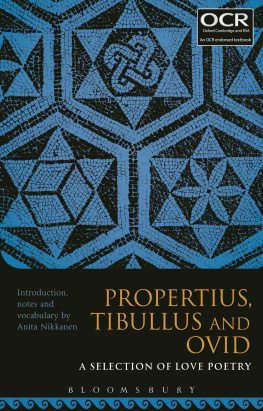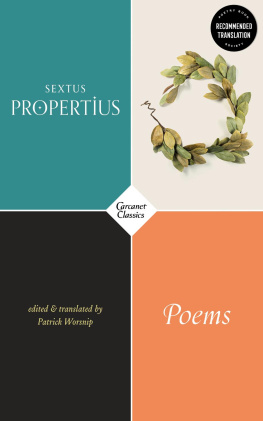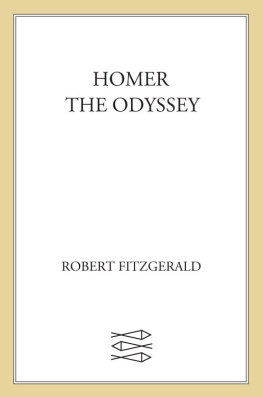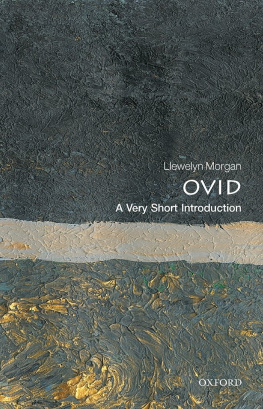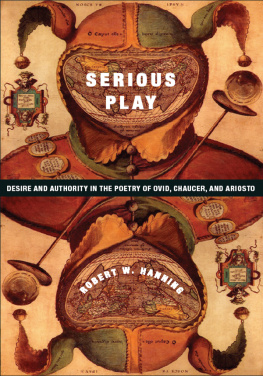Anita Nikkanen - Propertius, Tibullus and Ovid: A Selection of Love Poetry
Here you can read online Anita Nikkanen - Propertius, Tibullus and Ovid: A Selection of Love Poetry full text of the book (entire story) in english for free. Download pdf and epub, get meaning, cover and reviews about this ebook. year: 2016, publisher: Bloomsbury, genre: Art. Description of the work, (preface) as well as reviews are available. Best literature library LitArk.com created for fans of good reading and offers a wide selection of genres:
Romance novel
Science fiction
Adventure
Detective
Science
History
Home and family
Prose
Art
Politics
Computer
Non-fiction
Religion
Business
Children
Humor
Choose a favorite category and find really read worthwhile books. Enjoy immersion in the world of imagination, feel the emotions of the characters or learn something new for yourself, make an fascinating discovery.
- Book:Propertius, Tibullus and Ovid: A Selection of Love Poetry
- Author:
- Publisher:Bloomsbury
- Genre:
- Year:2016
- Rating:5 / 5
- Favourites:Add to favourites
- Your mark:
- 100
- 1
- 2
- 3
- 4
- 5
Propertius, Tibullus and Ovid: A Selection of Love Poetry: summary, description and annotation
We offer to read an annotation, description, summary or preface (depends on what the author of the book "Propertius, Tibullus and Ovid: A Selection of Love Poetry" wrote himself). If you haven't found the necessary information about the book — write in the comments, we will try to find it.
Propertius, Tibullus and Ovid: A Selection of Love Poetry — read online for free the complete book (whole text) full work
Below is the text of the book, divided by pages. System saving the place of the last page read, allows you to conveniently read the book "Propertius, Tibullus and Ovid: A Selection of Love Poetry" online for free, without having to search again every time where you left off. Put a bookmark, and you can go to the page where you finished reading at any time.
Font size:
Interval:
Bookmark:
The following titles are available from Bloomsbury for the OCR specifications in Latin and Greek, first teaching September 2016
Cicero Pro Milone : A Selection , with introduction by Lynn Fotheringham and commentary notes and vocabulary by Robert West
Ovid Heroides : A Selection , with introduction, commentary notes and vocabulary by John Godwin
Propertius, Tibullus and Ovid: A Selection of Love Poetry , with introduction, commentary notes and vocabulary by Anita Nikkanen
Seneca Letters: A Selection , with introduction, commentary notes and vocabulary by Eliot Maunder
Tacitus Annals I: A Selection , with introduction by Roland Mayer and commentary notes and vocabulary by Katharine Radice
Virgil Aeneid VIII: A Selection , with introduction, commentary notes and vocabulary by Keith Maclennan
Virgil Aeneid X: A Selection , with introduction, commentary notes and vocabulary by Christopher Tanfield
OCR Anthology for Classical Greek GCSE , covering the prescribed texts by Homer, Herodotus, Euripides, Lucian, Plato and Plutarch, edited by Judith Affleck and Clive Letchford
OCR Anthology for Classical Greek AS and A-level , covering the prescribed texts by Aristophanes, Homer, Plato, Sophocles, Thucydides and Xenophon, with introduction, commentary notes and vocabulary by Malcolm Campbell, Rob Colborn, Frederica Daniele, Ben Gravell, Sarah Harden, Steven Kennedy, Matthew McCullagh, Charlie Paterson, John Taylor and Claire Webster
Supplementary resources for these volumes can be found at www.bloomsbury.com/OCR-editions
Please type the URL into your web browser and follow the instructions to access the Companion Website. If you experience any problems, please contact Bloomsbury at academicwebsite@bloomsbury.com

Contents
This resource is endorsed by OCR for use with specification OCR Level 3 Advanced Subsidiary GCE in Latin (H043) and OCR Level 3 Advanced GCE in Latin (H443). In order to gain OCR endorsement, this resource has undergone an independent quality check. Any references to assessment and/or assessment preparation are the publishers interpretation of the specification requirements and are not endorsed by OCR . OCR recommends that a range of teaching and learning resources are used in preparing learners for assessment. OCR has not paid for the production of this resource, nor does OCR receive any royalties from its sale. For more information about the endorsement process, please visit the OCR website, www.ocr.org.uk.
The text and notes found in this volume are designed to guide any student who has mastered Latin up to GCSE level and wishes to read a selection of Propertiuss, Tibulluss and Ovids love elegies in the original. The edition is, however, particularly designed to support students who are reading the elegies in preparation for OCR s AS or A-Level Latin examination in June 201719. (Please note this edition uses AS to refer indiscriminately to AS and the expected first year of A Level, i.e. Group 1.) The selections provide a representative introduction to the genre of Latin love elegy and its conventions, as well as the different styles of the three authors. While they share the themes of love elegy most importantly, the celebration of their beloved in poetry they each bring their own take to it.
This edition contains a detailed introduction to the context of the selected Latin love elegies and the genre and style of the elegists, supported by summaries of the poems, a glossary of rhetorical devices used in this volume and a note on metre. The text of the elegies printed here is that of Robert Maltby, Latin Love Elegy: Selected and Edited with Introduction and Notes (Bristol: Bristol Classical Press, 1980), with a handful of changes, which are noted in the commentary. The poems are presented here in chronological order by author, starting with Propertius and ending with Ovid, who frequently responds and alludes to his predecessors; you are, of course, free to study them in any order. The notes to the elegies themselves aim to help students bridge the gap between GCSE and AS Level Latin, and focus therefore on the harder points of grammar and word order, background information necessary for understanding the text, such as mythology or religious practices, and points of style impacting on meaning. At the end of the book is a full vocabulary list for all the words contained in the prescribed elegies, with words in OCR s Defined Vocabulary List for AS Level Latin flagged by means of an asterisk.
In the notes on the text, I offer alternative interpretations of (and so, ways of translating) phrases and words. This is in order to illustrate the multivalent meanings of the text and the poetic beauty thereby afforded, as well as the ongoing scholarly debate about the particular meaning of a detail in the text. I therefore encourage students to enjoy this beauty and, for the purposes of finding their own translation, to consider the poem for themselves and choose the translation that best matches the way they interpret the poem. Even among specialists who have spent years studying these texts, there is not always consensus, but the best argued case is the most persuasive.
I am very grateful to Alice Wright and her team at Bloomsbury, and especially to the anonymous reviewer on her team and to the OCR reviewer for the many helpful suggestions and improvements.
Anita Nikkanen
October 2015
What is Latin love elegy?
Latin love elegy is a genre of poetry that emerged in the first century BC in Rome, amidst significant political and cultural changes as the Roman Republic gave way to imperial rule under Augustus (see further on the political context below). The genre itself was short-lived: the time period from the earliest elegies by Gallus to those of the last elegist, Ovid, spans only about forty years. The main Roman elegists are the ones focused on in this book; Propertius, Tibullus and Ovid (only very small fragments of Galluss elegies survive, and other elegiac poems are included in what is called the Tibullan body of poetry, although not all of the poems are by him). Despite the short time period during which Latin love elegy was composed, it has its own distinguishing characteristics and conventions. Although other topics are included, a prominent feature of Latin love elegy is the relationship of the poet with his beloved mistress: as the name suggests, they are love poems, depicting the ups and downs of the relationship. Often the poems directly address the beloved: indeed, they are spoken from the subjective, first-person stance of the poet. While some express the poets devotion to his mistress, others convey the heartbreak and jealousy when the love is not reciprocated.
In fact, it is this distinctive character of Latin love elegy that opens up the Roman world to a modern audience in a particularly accessible and, in some ways, familiar manner. Through the more subjective, first-person narrative of elegy we can really feel like we are getting to know the Romans well, some of them more personally. Instead of the cold, white marble statues and heroes excelling in battle or in the law courts, in elegy we meet everyday individuals with distinguishing personal characteristics, wishes, hopes and desires, to many of which we can relate more directly. While many of us moderns do not experience battlefields, epic journeys to found cities, or argue cases at law (at least not until a later age), most of us do experience and can relate to the ups and downs of a relationship and the emotions it provokes. What is more, our popular culture still deals with the same concerns: unrequited love, broken hearts and lovers intrigues are as ever-present in the pop music and television shows today as they are in Latin elegy. Through Latin love elegy, we can not only get to know the Romans better, but also explore different ways of looking at issues that still occupy us today.
Next pageFont size:
Interval:
Bookmark:
Similar books «Propertius, Tibullus and Ovid: A Selection of Love Poetry»
Look at similar books to Propertius, Tibullus and Ovid: A Selection of Love Poetry. We have selected literature similar in name and meaning in the hope of providing readers with more options to find new, interesting, not yet read works.
Discussion, reviews of the book Propertius, Tibullus and Ovid: A Selection of Love Poetry and just readers' own opinions. Leave your comments, write what you think about the work, its meaning or the main characters. Specify what exactly you liked and what you didn't like, and why you think so.

